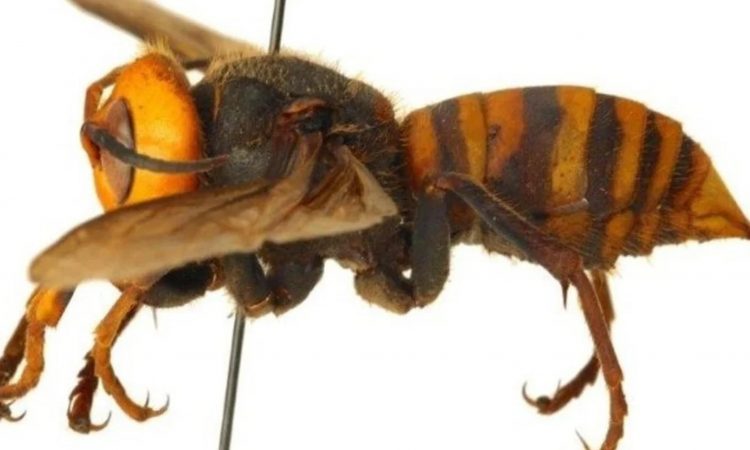
The world’s largest hornet, a 5-centimeter (2-inch) insect nicknamed “The Killer Hornet” and bee eater, has been found in Washington state, where entomologists are making plans to eradicate it.
The giant Asian insect, with a bite that could be deadly to some people, is just beginning to emerge from its winter hibernation.
“They’re like they came out of a cartoon strip with this huge yellow-orange face,” said Susan Cobey, a bee breeder at Washington State University.
“It is an impressively large hornet,” said Todd Murray, an entomologist at the university’s Extension program and an invasive species specialist. “It is a threat to health and, even more importantly, a significant predator to bees.”
The hornet was first seen in the United States last December, when the state Department of Agriculture verified two reports around Blaine, Washington, near the Canadian border. He also received two probable, but unconfirmed reports from sites in Custer, Washington, south of Blaine.
The hornet can sting through most beekeeper suits, inject nearly seven times more venom than a bee, and do it multiple times, said the department, which said it had ordered special reinforced suits from China.
How or when the hornet came to North America is unknown, the university said. It normally lives in the lowland forests and mountains of East and Southeast Asia and feeds on large insects, including wasps and bees. He was nicknamed the “Killer Hornet” in Japan, where he is known to have killed people.
Their life cycle begins in April, when the queens come out of hibernation, feed on plant and fruit sap, and search underground lairs to build their nests. Hornets are most destructive in late summer and early fall. Like a marauding army, they attack bee hives, killing adults and devouring larvae and pupae, the university noted.
Their stings are strong and painful, with a powerful neurotoxin. Multiple stings can kill humans, even if they are not allergic, the university warned.
From Listín Diario.







